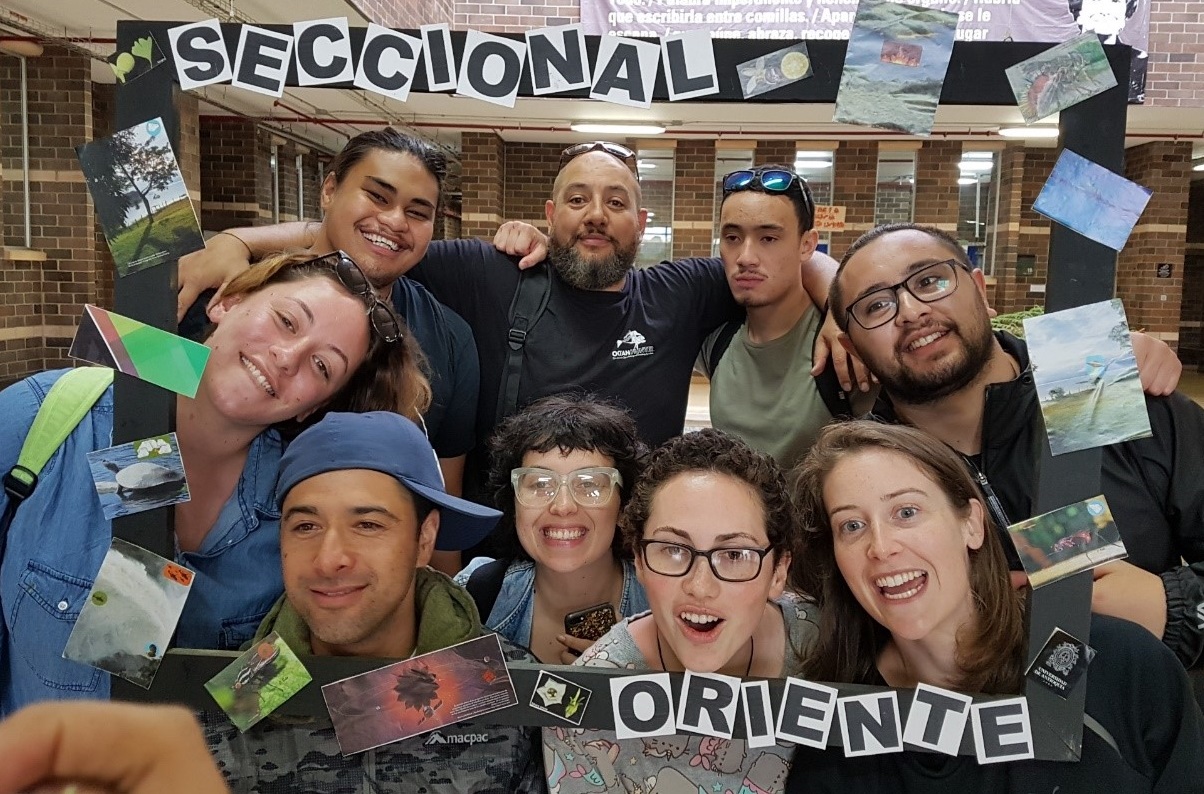23 February 2018 at 9:00 am
Cultural exchange in Colombia
“The opportunity for our students to interact with six indigenous groups from Medellin was an invaluable and rewarding experience.” Hone Morris, Academic Coordinator at Massey University shares how a four-week cultural exchange at the University of Antioquia, Colombia, resulted in life-changing experiences for 12 students.

In 2017, I led a group of 12 Māori Studies and Māori Visual Arts students to Medellín, Colombia for LatinoAotearoa, a four-week cultural exchange where we shared food, song, dance and other cultural practices with the indigenous students at the University of Antioquia.
The interactive programme involved weekly history lectures about the native peoples and settlement of Latin America, supported by weekly film viewings that gave a deeper insight into the future of Colombia’s indigenous people. Visits to downtown Medellin, including galleries and museums, parks and other public spaces, also helped our student know the city more intimately.
Most of our students are bilingual speaking both English and Te Reo Māori, but after four weeks, all of them gained the confidence to converse comfortably in Spanish too.
In return, Colombian students had the chance to improve their English skills, as well as learn Te Reo Māori. We also shared toi Māori (art), cooking, waiata (song), kapahaka (dance) and mau rākau (Maori weaponry skills) taught partly by our students. Our lecture on the journey of Te Reo Māori was particularly important, as Antioquia University is now in the first stages of introducing Colombian indigenous languages into their own curriculum.

Colombian students gather for a lesson on the mangōpare artistic pattern.
“Learning about different cultures and history, I have a new outlook on life now.”
For New Zealand to successfully develop trade and business relationships we must first understand the history, culture and language of our partners. By immersing our students in Colombian culture, they gained valuable skills that can be used not only in Colombia but in wider Latin America.
We also taught Colombians about how to work in a New Zealand context, understanding the values of Tangata Whenua and how these values influence New Zealand at a diplomatic, cultural, linguistic and trade level.
Many students have already expressed a desire to return to Colombia and to continue learning Spanish. Māori Visual Arts lecturer Israel Birch said one of our Master’s students wants to return and work with the indigenous communities on her PhD project, and a staff member from the University of Antioquia is now looking at moving to Aotearoa to teach.
Without a doubt, this trip contributed to the intellectual and personal growth of all members of the group. We can’t highlight enough how important this partnership has been.
At the end of their journey, students shared what they enjoyed the most:
“Learning about different cultures and history, I have a new outlook on life now.” “I am grateful for the time I spent here in Colombia. I’ve had the time of my life and I would recommend to everyone who gets the opportunity to take it.” “I have really enjoyed how much we have been able to engage with everyday Latin American culture. The parceros (language buddies) have made it possible for us to experience social life with Latino friends. I also really enjoyed the history classes and the field trips which showed the history and development of the cities.” “I hope this scholarship will continue because this experience has enriched my life and I will return to New Zealand sharing how beautiful, strong, resilient and warm Colombians are.” “I have absolutely loved this trip, it has been a very amazing and humbling experience. I’m so thankful to have been given this opportunity.”
A piece of Aotearoa in Colombia - a mural painted by Massey and Antioquia students.


